Intestinal REG3 Lectins Protect against Alcoholic Steatohepatitis by Reducing Mucosa-Associated Microbiota and Preventing Bacterial Translocation
- PMID: 26867181
- PMCID: PMC4786170
- DOI: 10.1016/j.chom.2016.01.003
Intestinal REG3 Lectins Protect against Alcoholic Steatohepatitis by Reducing Mucosa-Associated Microbiota and Preventing Bacterial Translocation
Erratum in
-
Intestinal REG3 Lectins Protect against Alcoholic Steatohepatitis by Reducing Mucosa-Associated Microbiota and Preventing Bacterial Translocation.Cell Host Microbe. 2025 Oct 17:S1931-3128(25)00425-1. doi: 10.1016/j.chom.2025.10.011. Online ahead of print. Cell Host Microbe. 2025. PMID: 41109221 No abstract available.
Abstract
Approximately half of all deaths from liver cirrhosis, the tenth leading cause of mortality in the United States, are related to alcohol use. Chronic alcohol consumption is accompanied by intestinal dysbiosis and bacterial overgrowth, yet little is known about the factors that alter the microbial composition or their contribution to liver disease. We previously associated chronic alcohol consumption with lower intestinal levels of the antimicrobial-regenerating islet-derived (REG)-3 lectins. Here, we demonstrate that intestinal deficiency in REG3B or REG3G increases numbers of mucosa-associated bacteria and enhances bacterial translocation to the mesenteric lymph nodes and liver, promoting the progression of ethanol-induced fatty liver disease toward steatohepatitis. Overexpression of Reg3g in intestinal epithelial cells restricts bacterial colonization of mucosal surfaces, reduces bacterial translocation, and protects mice from alcohol-induced steatohepatitis. Thus, alcohol appears to impair control of the mucosa-associated microbiota, and subsequent breach of the mucosal barrier facilitates progression of alcoholic liver disease.
Copyright © 2016 Elsevier Inc. All rights reserved.
Conflict of interest statement
None of the authors has a financial, personal or professional conflict of interest to disclose.
Figures
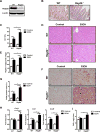
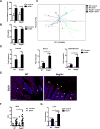
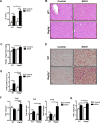
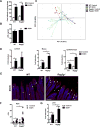
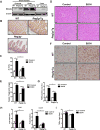

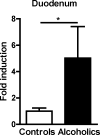
Comment in
-
Alcohol Lowers Your (Intestinal) Inhibitions.Cell Host Microbe. 2016 Feb 10;19(2):131-3. doi: 10.1016/j.chom.2016.01.014. Cell Host Microbe. 2016. PMID: 26867168
-
Alcoholic liver disease: Mucosal microbes exacerbate experimental alcoholic steatohepatitis.Nat Rev Gastroenterol Hepatol. 2016 Mar;13(3):121. doi: 10.1038/nrgastro.2016.26. Epub 2016 Feb 17. Nat Rev Gastroenterol Hepatol. 2016. PMID: 26882878 No abstract available.
References
-
- Adachi Y, Moore LE, Bradford BU, Gao W, Thurman RG. Antibiotics prevent liver injury in rats following long-term exposure to ethanol. Gastroenterology. 1995;108:218–224. - PubMed
-
- Ball SA, Tennen H, Poling JC, Kranzler HR, Rounsaville BJ. Personality, temperament, and character dimensions and the DSM-IV personality disorders in substance abusers. J Abnorm Psychol. 1997;106:545–553. - PubMed
-
- Balmer ML, Slack E, de Gottardi A, Lawson MA, Hapfelmeier S, Miele L, Grieco A, Van Vlierberghe H, Fahrner R, Patuto N, et al. The liver may act as a firewall mediating mutualism between the host and its gut commensal microbiota. Science translational medicine. 2014;6:237ra266. - PubMed
-
- Bode JC, Bode C, Heidelbach R, Durr HK, Martini GA. Jejunal microflora in patients with chronic alcohol abuse. Hepatogastroenterology. 1984;31:30–34. - PubMed
Publication types
MeSH terms
Substances
Grants and funding
LinkOut - more resources
Full Text Sources
Other Literature Sources
Medical
Molecular Biology Databases

